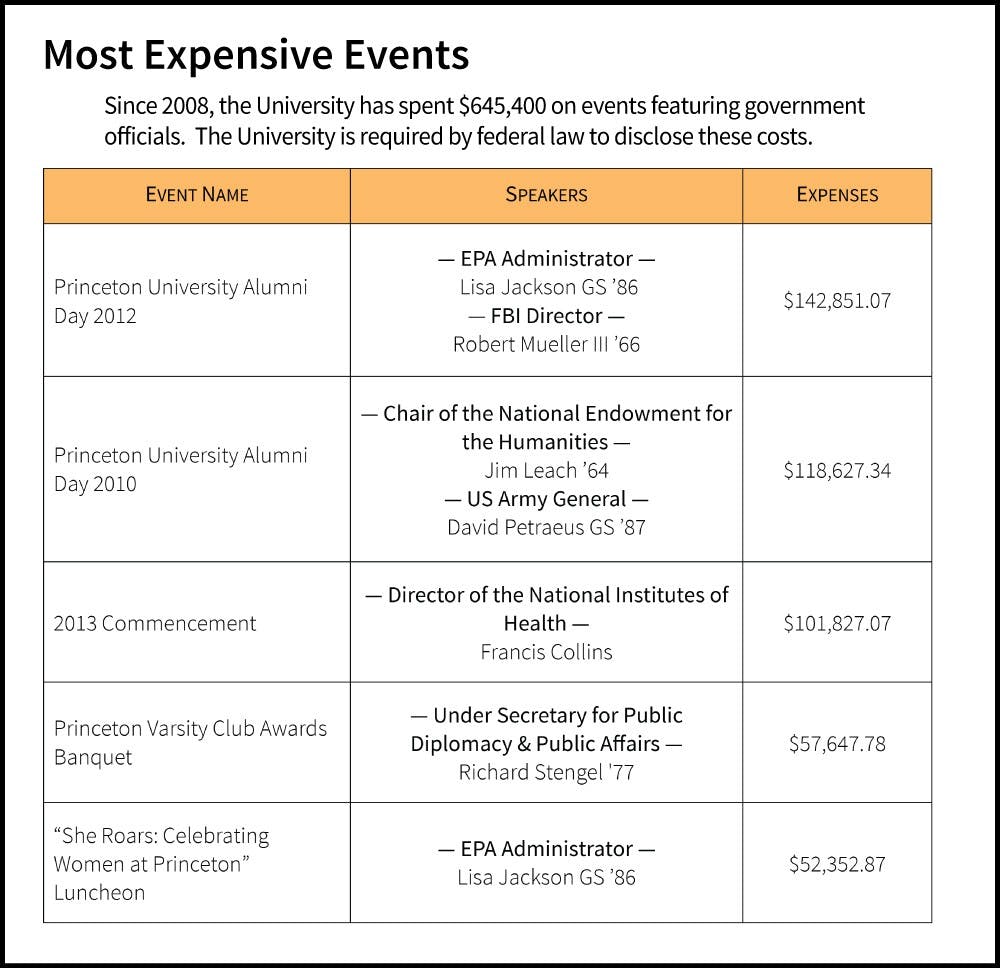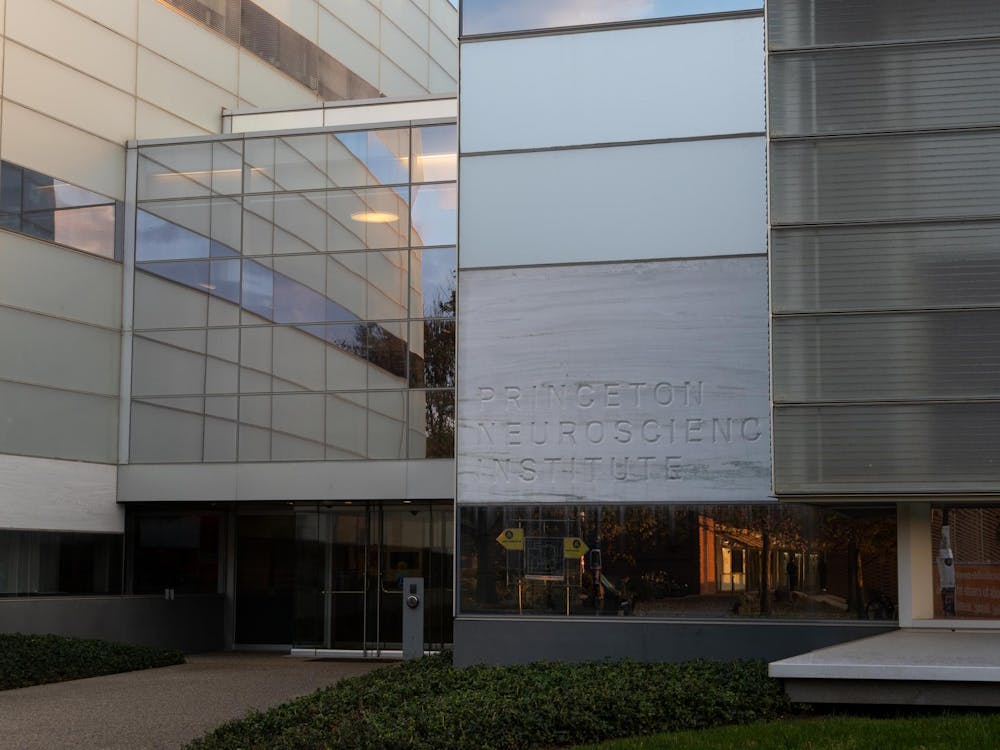The University has spent approximately $645,400 since 2008 hosting federal executive branch and congressional officials on campus, according to public filings reviewed by The Daily Princetonian.
During that time period, the University disclosed hosting 37 government individuals, for an average cost of $17,443 per event. In 2013, the University spent over $123,400 hosting events with federal officials.
Records of the University’s disclosures for such events go back to 2008, when lobbying regulations were amended to include disclosure of contributions made to government officials. The University employs a handful of lobbyists at its D.C.-based Office of Government Affairs and as a result is subject to lobbying disclosure regulations.
While the figures do not disclose speaking fees — as the University cannot pay government officials for any services — the expenses involved provide an indication of how much money is involved in organizing large-scale events at Princeton that will feature high profile individuals, including specific figures for food, alcohol, amenities and safety. For example, the University has spent an aggregate of $11,336 in security services, as well as $9,486 in flowers and $6,787 in liquor since 2008.
The University's chief lobbyist, Joyce Rechtschaffen ’75 explained in an interview that University departments that host speakers who are members of Congress or congressional personnel must fill out an online form that is then sent to her office. Executive branch personnel require special procedures, and departments must go through her office for these speakers, she noted.
She added that her office also distributes an ethics memo detailing the federal reporting requirements for these expenses twice a year. Disclosures for contributions to government officials are filed twice a year with the U.S. House of Representatives and the Senate.
Other events, such as lectures by public officials, create costs incurred by the public official’s presence. For example, when Jane Lubchenco, then-undersecretary of commerce for oceans and atmosphere, came to campus for a lecture in 2012, the University incurred expenses of over $11,000, including $4,000 in on-campus catering services.
So far in 2014, the University has spent $65,600 on events and receptions for government officials on campus. The largest chunk of that money was used to host the Princeton Varsity Club Awards Banquet, which cost $57,600 and featured Richard Stengel ’77, under secretary of state for public diplomacy and public affairs, as keynote speaker.

While not all of the expenses were incurred by Stengel’s presence on that occasion, the records for such a reception illustrate the extent to which the University goes to entertain at formal events, as well as, perhaps, the spectacle it puts on for distinguished visitors.
On-campus catering services incurred expenses of over $25,000 for food for 650 attendees at the event, and the University also paid $422 for a pewter plaque and over $2,000 to Shop-Rite Bar & Liquors, among other expenses.
Julius Hobson, a senior policy advisor at Polsinelli PC and an adjunct professor at George Washington University’s Graduate School of Political Management, said strict ethics rules accompany a lobbying entity’s relationships with public officials. Sit-down dinners with public officials are allowed if disclosed, he said, while receptions do not have to be reported.
“Could [the University] just show up to Washington and take them out to dinner for the sake of taking them out to dinner?” Hobson said. “No, they can’t. But they can [provide food] if the meal is in conjunction with the event.”

In 2013, when the University spent over $120,000 in expenses for public officials, the largest expense was related to geneticist Francis Collins, who was awarded an honorary doctorate from the University during Commencement. Collins’ visit, however, included expenses that would likely have been incurred regardless of whether a federal official was a part of graduation week festivities or not.
In 2012, the University incurred expenses of $142,851.07 when then-Environmental Protection Agency Administrator and now-University trustee Lisa Jackson GS ’86 and former FBI Director Robert Mueller '66 spoke at an Alumni Day event. Like Collins, the expenses incurred with Jackson and Mueller would have most likely been similar had it not involved a government official. The rest of expenses related to government officials incurred in 2012 was close to $40,000.
The Daily Princetonian was the recipient of part of the expenses related to public officials coming to campus in 2012, 2013 and 2014, as well as other years, due to advertisements.








